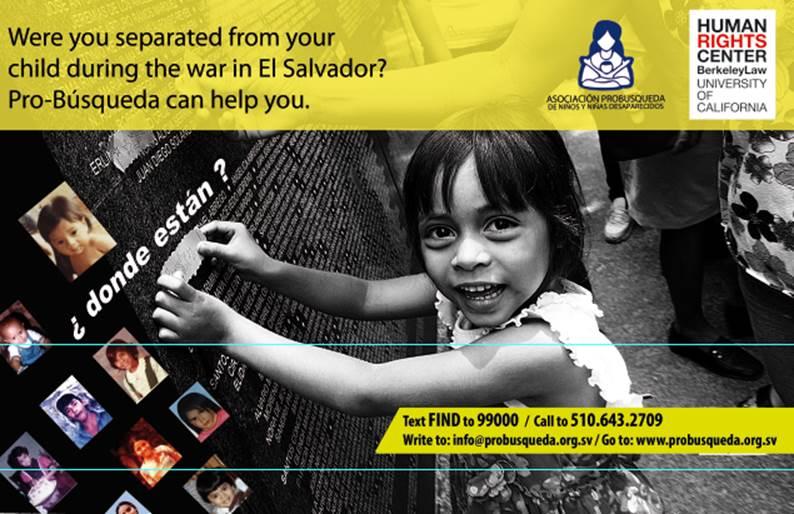Cristián Orrego Benavente, a forensic geneticist at the Human Rights Center, University of California, Berkeley, holds packages containing DNA samples. They were sent to him by adoptees from El Salvador interested in locating their biological parents.
Rosario was in her kitchen in Oakland, California, recently listening to her favorite Spanish radio talkshow, when she heard about a campaign that, she realized, could change her life.
The campaign includes public service announcements that distribute this message, in English and Spanish:
“Were you separated from your child during the war in El Salvador between 1980 and 1992? The Pro-Búsqueda Association of Disappeared Children from El Salvador will help you: Text the word FIND to 99000, or write to info@probusqueda.org.sv.” 
It’s a push to make Salvadorans in the US aware of efforts to reunite families through DNA testing. The wartime separations — estimated in the thousands — happened many ways: some children were taken by soldiers and sold to orphanages. Others were put up for adoption by their parents under duress.
In El Salvador, this reunification campaign has existed for years, and some reunions have happened. But the new US campaign hopes to reach immigrants like Rosario — Salvadorans who fled the war for the US and left children behind.
Rosario, who asked that her real name not be used to protect her privacy, says hearing about the reunification project on the radio triggered painful memories, but also some hope.
“I remember that day, the day I gave her away,” she says.” It was in 1983, and the war had intensified, and more civilians were being caught in the crossfire between leftist guerrillas and the military-run dictatorship.
Rosario says she handed her just-born girl to a man, recommended by a friend, who said he could take her baby to Miami. “I don’t even remember his name,” Rosario said. “It all happened so fast. There was no paperwork.”
Later, in the late 80s, Rosario fled El Salvador herself for California. “They put us in the back of a truck hauling bananas,” she said. She was squeezed in with 64 other Salvadorans. It took three weeks to reach the border. Her two other children eventually followed her.
For decades, Rosario has wondered what happened to that girl. She’d be 33 now. Rosario asks herself where does she live, and is she curious about her past, her biological mother?
It was enough for Rosario to call up the number announced on the radio that day.
And that eventually connected her to Cristián Orrego Benavente, the director of forensic programs at the Human Rights Center, at the University of California, Berkeley. He is a veteran when it comes to linking families using DNA testing, and now works with Pro-Búsqueda, the Salvadoran non-profit leading the reunification effort.
Orrego collected Rosario’s DNA sample and added it to Pro-Búsqueda’s growing family database. He knows the samples can lead to family reunions, and he has helped identify hundreds of missing Salvadoran children.
But Orrego also knows many more children are still unaccounted for.
One encouraging sign is a growing stack of manila envelopes in Orrego’s office, each containing a DNA sample. Each package is sealed with a number. But they are all from children in the US — adoptees who are now young adults — seeking their biological Salvadoran parents.
“What we want with the outreach campaign is that we now begin to receive or to contact families in this country that say we lost a child,” Orrego said.
And that’s what makes Rosario’s case a breakthrough. She is the first Salvadoran immigrant in the US to respond to this campaign. I asked her what she would say if she met that girl she gave up in El Salvador, a grown woman now.
“I don’t know what I’d say at that moment,” she said. “I wouldn’t know how to express myself.”
But that moment will only happen if her biological child hears about this campaign — and wants a reunion too.
Every day, reporters and producers at The World are hard at work bringing you human-centered news from across the globe. But we can’t do it without you. We need your support to ensure we can continue this work for another year.
Make a gift today, and you’ll help us unlock a matching gift of $67,000!